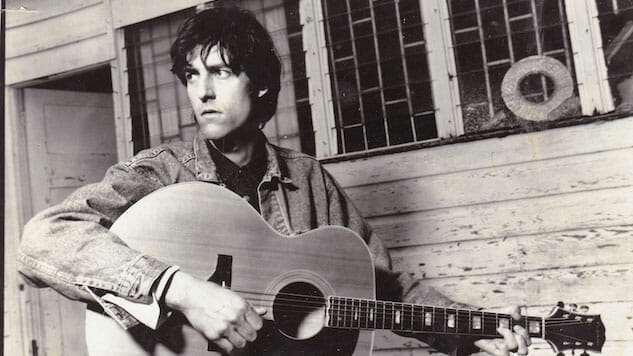Simon Bonney Explores His Past, Present, Future On A New Compilation

Simon Bonney doesn’t have to worry about trying to make a living from his music. The Australian-born singer-songwriter has his job managing aid programs for non-profits around the world to keep he and his wife afloat. It’s work that has allowed him to bounce around the world, letting new songs come when the mood strikes or inspiration hits.
As comfortable and content as he sounds when we recently spoke with him, things weren’t always so simple for Bonney. Through the ‘80s and early ‘90s, he scraped by, making music with his post-punk band Crime & The City Solution (one version of the group made a brief on-stage appearance in Wim Wenders’ 1987 film Wings Of Desire; another contributed to the much-loved soundtrack of that same director’s Until The End Of The World). After that band’s dissolution, he and his wife, musician Bronwyn Adams, moved to the U.S. and let the roots music of his newfound home infect his own songwriting over two marvelous but underappreciated solo recordings, 1992’s Forever and 1995’s Everyman. But things stalled out soon after he recorded a third solo album and he put music on the shelf for a while to support his family.
While another version of Crime & The City Solution briefly came together earlier this decade, Bonney’s purposefully kept himself out of the grind of the modern music industry. But he’s about to pop his head back aboveground this month with a run of shows performing alongside Mark Lanegan (tour dates listed below) and the forthcoming release of Past, Present, Future, a fantastic collection that pulls tracks from his two previously-issued solo albums and a few tunes from his unreleased record, Eyes Of Blue. Put together, the tracks flesh out a previously sketchy portrait of an artist that, in spite of better-known fans like Lanegan, should be more widely known. Bonney’s songs of existential woe, institutional ruination and personal anguish are presented with the dusty heat of a Morricone soundtrack or Dylan’s creaking abstractions from the ‘70s.
-

-

-

-

-

-

-

-

-

-

-

-

-

-

-

-

-

-

-

-

-

-

-

-

-

-

-

-

-

-

-

-

-

-

-

-

-

-

-

-








































